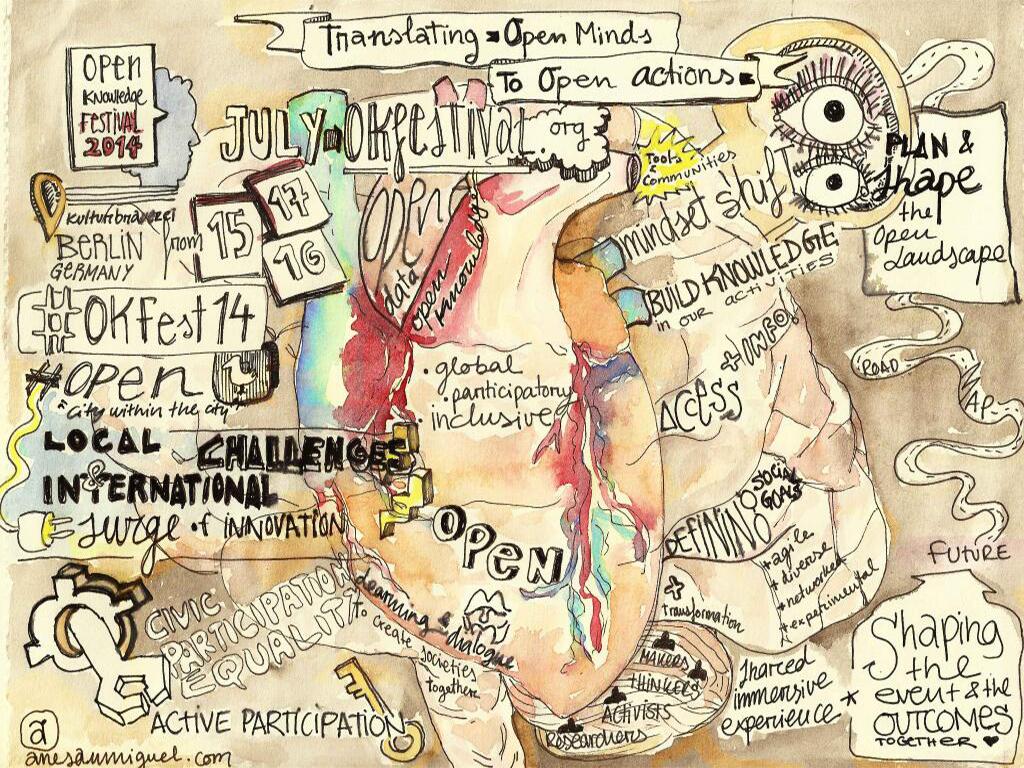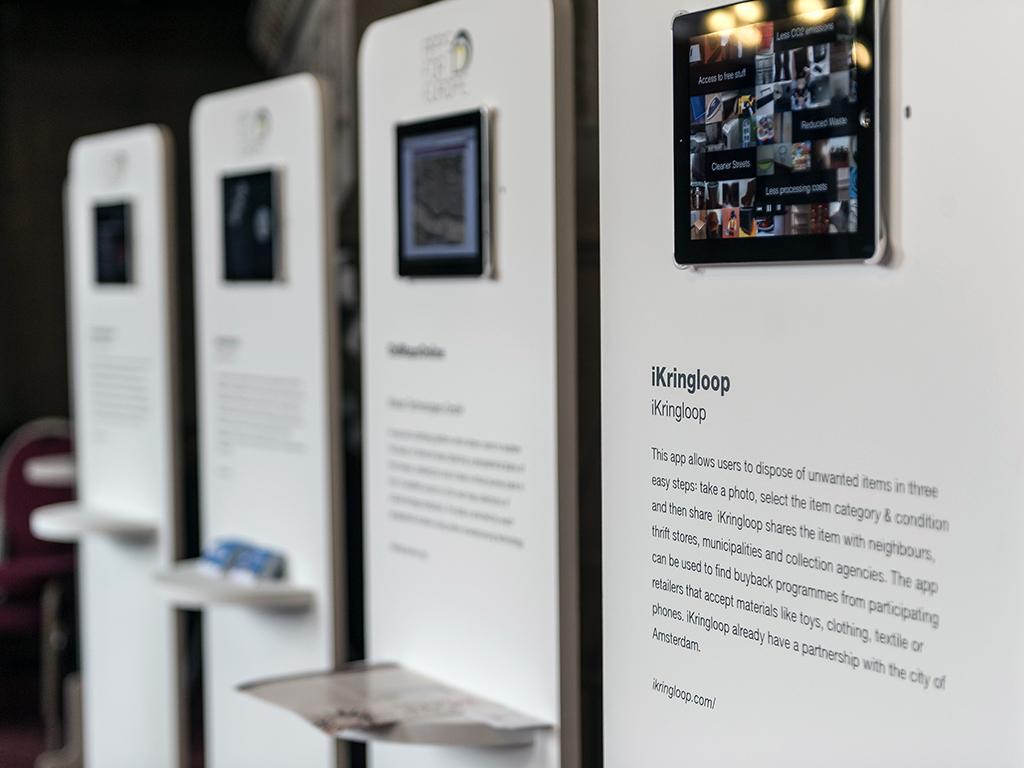On behalf of Waag Ivonne Jansen-Dings and Frank Kresin traveled to Berlin for the Open Knowledge Festival 2014, where they organized two sessions and a fringe event. As a representative of several EU projects, but also to connect with other advocates of an open society. Below an impression by Ivonne. About applause for Neelie Kroes, Google hoaxes and the movement of technology towards the social domain.
OKfestival offered a varied selection. From policy- to maker-sessions, the festival attracts a wide audience with a common shared interest in open and commons. It's nice to know that so many people are worried about guarding the public domain, like we are. Keynote speaker Beatriz Busaniche put it well: "it's a battle, and we're losing..."
My own 'Code a Difference' session showed in a short time how the "Code for" movement worldwide is developing. Along with Lynn Fine by Code for America and Julia Kloiber of OKFN Germany we soon came to the difficult questions that come with a fellowship program. How do you convince the public institutions of the benefits of working with programmers, without zooming in at the required specific endpoint. And how do you deal with vendor lock-in and procurement rules?
With a speaker like Neelie Kroes, the second day of the festival began very inspiring. She remains one of the greatest advocates within government (EU) on subjects like Open and Transparent. Her involvement at the age of 72 is motivating for all attendees and a standing ovation was well deserved.
Google told, as sponsor, a slightly obligatory story. On the importance of creating not only applications, but also an infrastructure. Erik Hysen could count on a number of critical questions. Because at a festival where privacy is a hot topic one looks suspiciously at a party who holds all the cards in that matter.
Inspiring was therefore the collective PENG. I did not know their example Google Nest (website removed as requested by Google) - a fantastic hoax involving Faith Bosworth and Jean Peters posing as two Google employees who presented great Google products, which mean a nightmare for our privacy in all respects. Through proper social engineering the entire world bought the story. Brave when you consider that Google has unlimited resources to make life very difficult for the PENG collective, to say the least.
Frank Kresin also indicates why Open Knowledge is essential:
"Waag is an advocate of the free dissemination of knowledge, data and designs, the global community comes together during the OK Fests. We are involved in CitySDK, Commons4Europe, Apps for Europe and Open Cities, and successfully so. Now it is time to create the next steps: from open data to open algorithms that define our lives (in part) and are often invisible; data literacy, so that people know what they see; from apps to platforms that make data available in usable form, from government data to your data (open data co-ops, sensor data, humans-as-sensors). And finally, most importantly, tech-driven to social movements, connecting with existing interest groups, lobbying etc. to go from open data to an open society. We are looking forward to new projects, including in the field of open air quality data."
My favourite sessions were (to be found on etherpad):
- The E-waste exploration @ OKFestival: the workshop clearly shows the amount of e-waste that we all produce. Interesting topics: how much e-waste does the west dump in the third world, how is this subject dealt with on an EU level? Especially the user components cookbook appeals to me. I would like an easy way to create new things from old stuff.
- Code a Difference: what problems does the "Code for" - movement run into? What does a fellowship program involve?
OKFestival 2014 offered many sessions on working with data, edit, persuade, inspire, visualize, and all the beautiful things you can do with it. The etherpads of the sessions are well kept in almost all cases, so that all links and details of speakers are easily retrievable.


